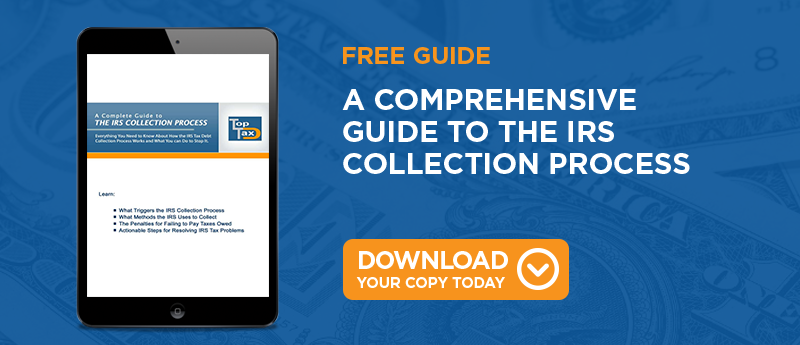
If you owe back taxes, consider signing up with a payment plan with the IRS. Yes, the IRS actually has payment plans for people with low income, not enough time, or maybe just some plain bad luck.
Owing the IRS anything can make your stomach churn, but the agency isn’t completely heartless, regardless of popular opinion. Uncle Sam would rather get something than spend money chasing after nothing, so they have a variety of ways you can pay what you owe with as little trouble as possible.
There is one caveat: you will pay more with a payment plan than you would have if you had paid your taxes on time. There is the added pain, but it’s less painful than many of the alternatives.
Here is everything you need to know about settling your back taxes with an IRS payment plan.
Does Your Tax Debt Qualify for a Payment Plan?
That’s the first question you need to answer. Not all back taxes are eligible for an IRS payment plan. While not heartless, the agency can be fickle. It reserves the right to refuse to accept an installment plan at any time for any reason.
Why would Uncle Sam do that?
- Your tax forms are incomplete.
- Your tax forms are improperly prepared.
- Your tax filings from previous years are not up to date.
- The IRS thinks you can't pay your tax debt on time.
- You are in bankruptcy.
There is an appeal process if your request for a payment plan is rejected, so you still have a chance at qualifying for a payment plan. All that said, 97% of people who owe back taxes qualify for a payment plan.
Setting Up a Payment Plan Doesn’t Stop the Interest and Penalty Accrual
Sorry, but even if you get a payment plan approved, interest and penalties will accrue to the remainder of the balance after every payment. That’s what we meant by our caveat earlier. Also, there may be a fee involved in setting up your plan.
If you owe less than $100,000 in combined taxes, penalties, and interest and apply for a short-term payment plan of 120 days or fewer:
- Fees are waived if you apply online, by phone, postal mail, or in person.
- Fees are also waived if you pay by automatic checking account withdrawals, or pay by check, money order, or debit/credit card.
If you owe less than $50,000 in combined taxes, penalties, and interest and apply for a long-term payment plan (more than 120 days):
- If you choose to pay by automatic withdrawal, the fee is $31 to apply online, $107 to apply by phone, postal mail, or in person.*
- If you choose to pay with another method, the fee is $149 to apply online, $225 to apply by phone, postal mail, or in person.**
*Fees waived for low-income applicants.
**Fees reduced to $43 for low-income applicants and may be reimbursed under some circumstances.
A low-income applicant has an adjusted gross income at or below 250% of the federal poverty level. The federal poverty level for 2019 starts at $12,490 for one person to $43,430 for a household of eight. The level is slightly higher for those living in Alaska and Hawaii.
You Need to Pay On Time to Avoid Default
Since the IRS is allowing you this opportunity to pay in installments, don’t spill their milk of human kindness by skipping a payment or paying late all the time. If you don’t pay on time, they can rescind the payment plan, levy a fine, or place a lien on your property.
If you go into default by skipping more than one payment within a year, a reinstatement fee may be charged for starting your plan back up. As always, interest and penalties continue to pile up until the entire balance is paid off.
If you receive a notice from the IRS stating they intend to terminate your installment agreement, call the agency immediately to reduce the chances of enforced collection action. The IRS will hold off on enforced collections under certain circumstances.
- When you are considering a payment plan.
- While a plan is still in effect.
- For 30 days after a request is rejected or terminated.
- During the period the IRS evaluates an appeal of a rejected or terminated agreement.
To avoid problems, pay at least the minimum monthly payment when it is due, file all returns on time, and pay all taxes in full and on time. In the future, if you are due a refund, it will be put toward your back tax balance until it’s paid off. Make any scheduled payments anyway.
Obviously, if you move, let the IRS know.
Types of Payment Plans
Again, the IRS shows they aren’t all bad. There are five IRS Tax Installment Agreements you can choose from , depending on how much you owe, how long it will take you to pay, and other considerations.
Guaranteed Installment Agreement
If you owe $10,000 or less, you may be eligible for this plan.
- Fill all past returns.
- You may not have filed or paid late on the previous five years’ worth of returns.
- You may not have used an installment agreement plan within the previous five years.
- You must be able to pay the entire balance within 36 months (3 years) or less.
The GIA is simple to apply for online yourself, and you are likely to qualify easily if you meet the criteria above. Another bonus - you don’t need to provide a full financial statement to the IRS to get into this plan.
Streamlined Installment Agreement
If you owe up to $50,000 in back taxes, you may qualify for this plan. It’s easy to qualify and is similar to the guaranteed installment agreement, for now. (It could change.) You can make payments for up to 72 months (6 Years), and you don’t need a financial statement.
Of course, if you pay off early, you can save yourself some money in interest and penalties.
Installment Agreement for Tax Debt over $50,000
Things get a little stickier at this level. When you owe this much money to Uncle Sam, you may have difficulty qualifying for a payment program. This time, the IRS is very thorough in its assessment of your financial situation.
This time you will need a financial statement, and it would be a good idea to have a tax professional help you. (We’re available!)
Partial Payment Installment Agreement
Maybe, just maybe, you can qualify for a partial payment plan if you just can’t come up with the cash to pay off your taxes in one go. It is difficult to qualify for this plan, is all we’re saying. In exchange for allowing you to take longer to pay your taxes, the IRS files a federal tax lien for debt collection guarantee.
Again, talk to a tax professional if you are in this position.
Offer in Compromise
You throw yourself on the mercy of the IRS to see if you can settle your debt for less than you owe. It’s really, really hard to get one of these. You just about have to be destitute. In this case, you definitely need to call us or contact an experienced tax professional.
That’s everything you need to know about settling your back taxes with an IRS payment plan. At least, everything that would fit into a single post.
If you owe back taxes and need help setting up a payment plan, give us a call. Also, subscribe to our blog for more tidbits about taxes.




